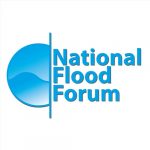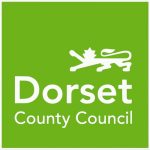BRIC is an exciting 2-year, €3.4m project which has secured 70% grant funds from the Interreg-France-Channel-England programme. Rather than being an environmental project, it will address the issue of flood management from a social innovation perspective.
Social innovation in this context refers to the ‘co-creation’ of services through collaboration between civil society (individuals, community associations, NGOs etc) and public authorities, with the aim of improving or creating new services that are better targeted and more efficient. The project has an ambition to integrate flood management more closely with community resilience and public health, to create new social enterprise opportunities, and to identify future revenue streams to ensure this work continues.
BRIC will do this through testing new approaches to flood risk management in pilot areas, learning lessons and identifying good practices through the process of doing so. As part of this project the National Flood Forum will build upon our work with communities and partners in Kent, with support from Kent County Council. We will focus on setting up new Flood Action Groups in coastal areas, building a network of Flood Action Groups across the county and piloting the use of community led, web based interactive maps. We will also be contributing to each of the wider project elements, sharing and learning with each of the project partners in France and England to develop new and better approaches for community led approaches to flood risk management.
Each pilot will follow some fundamental principles, adapted to meet local needs:
Develop systems and procedures that share power and responsibility more equitably between government bodies and civil society
Involve vulnerable groups (specifically the elderly and those ‘far from the labour market’)
Improve the life and employment skills of those in vulnerable groups
Make use of a digital platform provided by one of the BRIC partners, OgoXe, as a communications and training tool
Trial smart devices from OgoXe (Community Information and alert ‘totem’; personal alert device)
Co-create flood management services: hazard identification & monitoring; flood policy, physical protection, alerts, recovery.
Outputs from Project will be:
- 8 community flood resilience networks
- 6 skills development schemes for disadvantaged people
- 1 community of practice for community-based hazard analysis
- 1 web platform on flood risk management
- 1 resilience toolkit on best practice, tools, and guidance
Results of the project will include:
- 70% of participants will be better prepared for flooding
- 30% of participants will evidence improved health and wellbeing
- 30% of participants will report an improvement in trust with local government
- 350m Euros saved in avoided losses and costs from flooding across the project region











![Combined surveys_FINAL[54]](https://nationalfloodforum.org.uk/wp-content/uploads/2025/05/Combined-surveys_FINAL54.jpeg)
